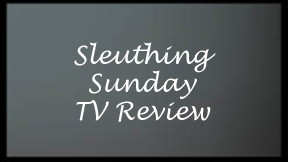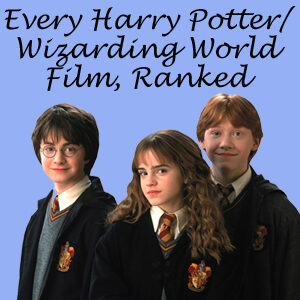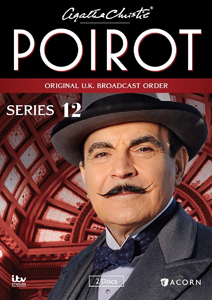By its penultimate Season 12 (2009-10, ITV, A&E), “Agatha Christie’s Poirot” had developed an emotional and thematic continuity, wherein Poirot is forced to confront the evil of some villains. Sometimes it’s through angrily rebutting the criminal’s defense in the summation gathering. And in his most famous case, he unwillingly serves as moral judge. After this many cases, he’s earned that moral high ground, and I understand why “Murder on the Orient Express” comes so late in the run.
All four episodes are carefully crafted, with the weaker novels being smartly tightened up. The downside is that if you’re in the mood to laugh, that’s no longer a goal of “Poirot.” But while we’re moving toward the grimdark approach of Sarah Phelps’ miniseries from later in the 2010s, these four episodes stay within Christie’s plot, character and thematic boundaries, only emphasizing a grimmer mood.
I have few complaints about any of the four adaptations – indeed, the writing team has mastered the art of transposing beloved books to the needs of a TV series’ flow – but I’ll rank them anyway, and take the path of least resistance with my choice for No. 1. (SPOILERS FOLLOW.)

“Agatha Christie’s Poirot” Season 12 (2009-10)
ITV, A&E; four episodes
Directors: Ashley Pearce (1), Charlie Palmer (2, 4), Philip Martin (3)
Writers: Nick Dear (1), Mark Gatiss (2), Stewart Harcourt (3, 4)
Stars: David Suchet, Zoe Wanamker, David Yelland
1. “Murder on the Orient Express” (episode 3, written by Stewart Harcourt)
Harcourt and director Philip Martin (in his only episode) serve two masters: People who have read the book and seen the 1974 film (the majority of 2010 viewers) get drenched in the moral darkness of the story from the beginning, when a new prolog plants the seeds of Poirot’s moral struggle. He solves a military case and a soldier kills himself, and in the Middle East, a woman is stoned to death for having an out-of-wedlock pregnancy. Legal justice is served, but is moral justice served?
Meanwhile, future viewers wanting the definitive “Orient Express” still get its other celebrated aspects – the procedure of Poirot interviewing everyone on the train, leading up to the surprise wherein they all did it (including roles played by Jessica Chastain and Barbara Hershey). Still, Poirot’s internal troubles are emphasized; I like how there is no “ah-ha” moment. Rather he gradually realizes all of these good people murdered an evil man (a suitably slimy Toby Jones), and he is in a rare position: He can choose to keep the authorities out of it.
He makes the morally right choice but it’s also a chilling one for Poirot, stylistically emphasized by the stark coldness of the train when the power goes out the night before they are rescued from the snowdrift.
Novel: “Murder on the Orient Express” (1934)

2. “Three Act Tragedy” (1, Nick Dear)
This book is sometimes called “Murder in Three Acts,” but the chosen title is appropriate because by the end we feel the tragedy of Sir Charles (Martin Shaw), who does horrible things to preserve the life he desires – but we can see from his tears that his decisions were not taken lightly. It’s another of those age-gap Christie romances – Charles’ fiancée is the much younger Egg (Kimberley Nixon) – wherein the lack of chemistry shows up on screen more than in the book. But that adds to the tragic nature.
“Three Act Tragedy” is overlooked because it lands in Christie’s golden age and is similar to “Lord Edgeware Dies,” in that both feature dinner parties, are set in the world of theater, and conclude with a summation gathering on a stage. It’s not as good, partly because it’s overstuffed with characters. Dear smoothly solves this by excising Sir Satterthwaite (a good character, but not a necessary one) and placing Poirot at the initial party.
Still, it shouldn’t be overlooked, because it’s here – not in the more lauded “ABC Murders” – that Christie devises the chilling concept of a villain committing additional murders to hide the motive of the primary murder.
Novel: “Three Act Tragedy” (1935)
3. “Hallowe’en Party” (2, Mark Gatiss)
Though fairly maligned among Christie’s catalog, “Hallowe’en Party” gets a wonderfully moody adaptation worthy of being in your October rotation, even ranking ahead of the deliberately horror-centric “A Haunting in Venice” (2023). Refreshingly, it’s a tad lighter than the surrounding Season 12 yarns, as humor comes from Zoe Wanamaker’s performance as a sickbed-bound yet deadline-bound Ariadne Oliver.
Adding to “Poirot’s” tradition of non-star yet excellent supporting actors we have Julian Rhind-Tutt as Michael Garfield, the gardener, and Mary Higgins as young Miranda, the latest to fall under Garfield’s not-so-noble charms.
With Christie’s writing (from the period when she was dictating, and the editors were somewhat lax) tightened up by prolific TV writer (and actor) Gatiss, it’s revealed that “Hallowe’en Party” actually boasts a smart mystery and red-herring side plots with emotional heft.
Novel: “Hallowe’en Party” (1969)
4. “The Clocks” (4, Harcourt)
As with “Third Girl,” “The Clocks” is an awkward one, as it must be transposed from the 1960s (with Christie exploring the rise of tall apartment buildings) to the 1930s. Harcourt smoothly emphasizes a theme of growing distrust among neighbors who interact less and less as neighborhoods become more diffuse in the between-wars period. I like how a young, observant girl moves from an apartment unit to a treehouse.
We again get a smoothing-out of one of Christie’s less crisp novels, as Poirot already knows Colonel Race’s son (Tom Burke, “Furiosa”), who becomes his latest one-off partner in sleuthing. (I maligned that the elder Race is excised from “Cards on the Table,” but thankfully he is kept in “Death on the Nile,” thus allowing for continuity.)
A big clue remains unsolvable by the observer — the use of clocks in a plot by a fictional novelist, handled by the typesetting firm that’s home to both the wrongly accused and the actual villain. Making up for the story’s mystery-plotting weaknesses are a batch of well-drawn and suspicious characters, and the heartfelt but dicey romance between young Race and lead suspect Shiela Webb (Jaime Winstone). Something has to rank last in this elite season, but you should still make time for “The Clocks.”
Novel: “The Clocks” (1963)
IMDb Top 250 trivia
- “Poirot” ranks No. 151 among IMDb’s top 250 TV shows with an 8.6 rating.
- Suchet’s is the highest-rated “Murder on the Orient Express,” at 8.0. It tops those of Finney (7.2), Branagh (6.5) and Molina (5.1).
- “Hallowe’en Party” (7.8) beats out Branagh’s “A Haunting in Venice” (6.5).
Sleuthing Sunday reviews the works of Agatha Christie, along with other new and old classics of the mystery genre.

